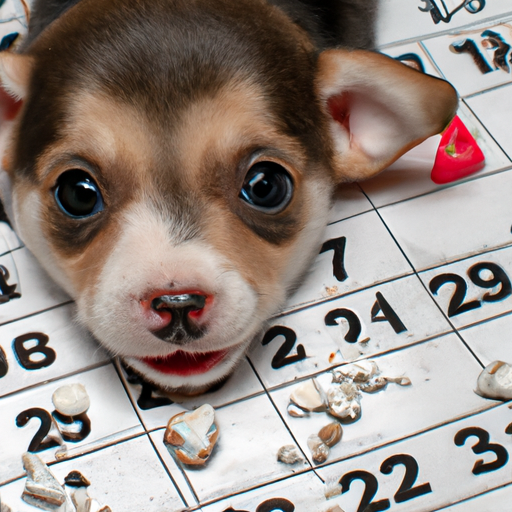Understanding the Puppy Teething Process
As your puppy grows, so do their teeth. Just like in humans, dogs have two sets of teeth in their lifetime. The first set, known as “milk teeth” or “baby teeth,” start to emerge when puppies are around 3-4 weeks old.
By the time they’re 8 weeks old, most puppies have all 28 of their baby teeth. These are temporary and will soon be replaced by their adult teeth. This transition period, often referred to as the “teething process”, can leave you wondering: “when do dogs stop losing teeth?”
The Timeline of Losing Baby Teeth
The process of puppies losing their baby teeth and growing their permanent ones is not much different from what happens in humans.
- Incisors: The first teeth to fall out are usually the incisors, the small teeth at the front of the mouth. This typically occurs when the puppy is between 3 and 4 months old.
- Canines: Next to go are the canines, the sharp, pointed teeth. These usually fall out when the puppy is around 5 months old.
- Premolars: The last ones to go are the premolars, the teeth located at the back of the mouth. These usually fall out when the puppy is between 5 and 6 months old.
By the age of 7 to 8 months, most dogs should have all of their 42 adult teeth.
Signs Your Dog Is Losing Teeth
As a caregiver, it’s important to know the signs that your dog is losing its teeth. They include:
- Finding baby teeth around your home
- Increased chewing
- Drooling or dribbling
- Pawing at the mouth
- Decreased appetite or difficulty eating
Remember, while some discomfort is normal during the teething process, excessive discomfort is not. If your dog appears to be in pain, it’s time to visit the veterinarian.
Taking Care of Your Puppy’s Dental Health
Good dental health is essential for your puppy’s overall health. Here are some tips to help you take care of your puppy’s teeth:
- Brush their teeth regularly: This helps to remove plaque and prevent tartar buildup.
- Provide chew toys: Chew toys can help to relieve discomfort during the teething process and also help to keep the teeth clean.
- Feed them a balanced diet: A good diet is essential for good dental health.
- Regular vet check-ups: Regular check-ups can help to identify any dental problems early.
FAQ’s
Q: What age do dogs stop losing teeth?
A: Most dogs stop losing teeth by the age of 7 to 8 months.
Q: What can I do to help my puppy during the teething process?
A: You can provide chew toys, brush their teeth regularly, and monitor them for any signs of excessive discomfort.
Q: How many teeth do dogs have?
A: Adult dogs have 42 teeth.
Q: What should I do if my dog seems to be in pain from teething?
A: If your dog appears to be in pain, it’s recommended to visit the veterinarian.
Q: How often should I brush my dog’s teeth?
A: Ideally, you should brush your dog’s teeth daily, but at least a few times a week is necessary.
Remember, the key is to maintain regular dental care and keep a watchful eye during the teething process. This will ensure that your puppy transitions into adulthood with a healthy set of teeth.



